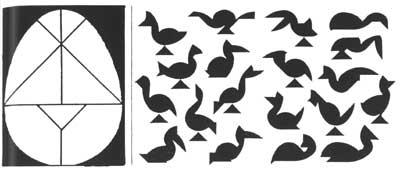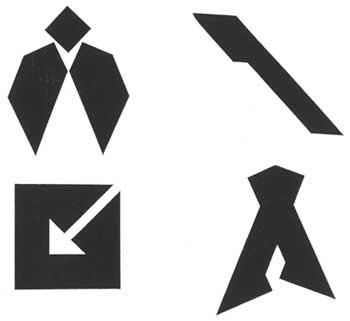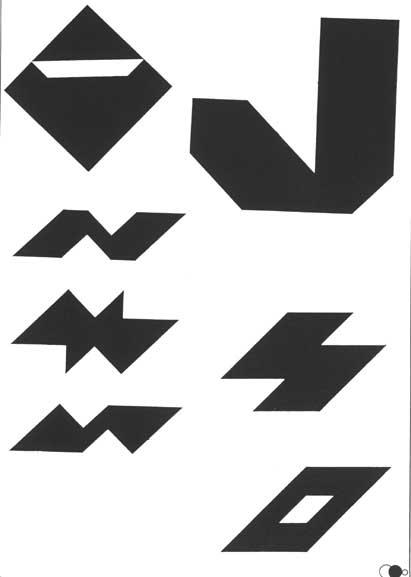Tangram
We have already brought the puzzles or “heads” and some Chinese games, checkers and chess. This time we bring you to a Chinese “puzzle”: The famous Tangram. And we say it famous, surely because you already know it. (Figure 1).
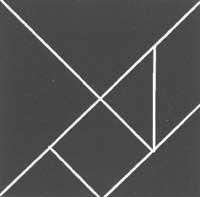
Let's start by remembering his story.
XIX. In the introduction of a book on 20th century Chinese puzzles it can be read that the origin of tangram (and even the inventor) was unknown.
The Chinese name of Tangram is Ch’i Ch’ae pan (game of the seven elements). Chu high (740-330 BC) The word is. The name comes from a Chinese custom. And it is that on the seventh day of the seventh month it was happy to pass a thread through the seven zuelos of a needle.
The first books published on tangram appear at the time of the emperor Ch’ing Chia Ch’ing (1796-1820), the first in 1813. However, the game was already widespread. In Europe, for example, it seems that the first book appeared in 1805.
Chinese books are divided into two parts. Problems arise in the first, and solutions arise in the second. The problems bear a Chinese symbol with the intention of explaining the meaning of the image, although this is as square as abstract (see figure 2).
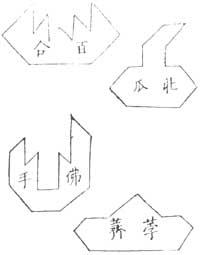
The game would be a great success, as indicated by the pile of books published since 1813. It spread rapidly throughout Europe and America and by 1818 books could already be found in Germany, Great Britain, France, Italy and Austria. In 1817 M. A Williams article was published in which a series of mathematical exercises that can be solved with the help of tangram are presented. Napoleon himself, during his exile, was a great lover of tangram.
European and American books were mainly copies of Chinese. However, they provided the more Arabic lyrics and figures to the tangram. Although we have said a contribution, different versions of these letters and figures were made (see figure 3).
If at first one of the attractions of the game was to be able to create new images, little by little that advantage was lost (but it has not yet completely finished).
Tangram is not a competition game, but individual.
The game consists of seven smooth pieces, such as two small triangles (equal), a triangle, a square and a rhomboid (each can be formed by two small anterior triangles) and two large triangles (which can be formed by four small triangles) (see figure 1). This game has no rules. However, it has two limits or rules:
- All images must be completed with seven pieces.
- All images are launas (no pyramids can be made).
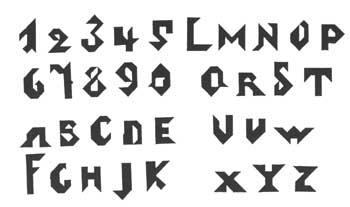
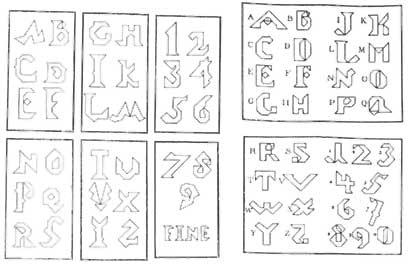
Respecting these two conditions, the player can do whatever he wants with the chips (for example, the rhomboid can be used on both sides).
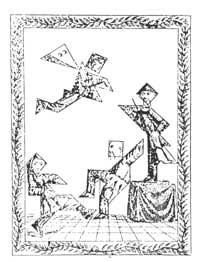
Tangram convex
With the pieces of Tangram you can form infinite images. Just move a little piece in an image. But let's give some seriousness or rigor to the game.
As you can see, all the pieces of the game are convex. The question now is: How many convex images can be built with tangram? This time the answer is not infinite, no. In 1942 Fu Traing Wang and Chuan Chih Hsiung demonstrated that these convex images will have a maximum of eight sides. Then, considering that convex images are framed within a rectangle, it was also demonstrated that 20 convex images were created.
Only 13 of them can be built with tangram pieces (see figure 5). In these tests they assumed that these convex images should be constructed using 16 triangles as the small triangles, since the tangram can be divided into 16 small triangles.
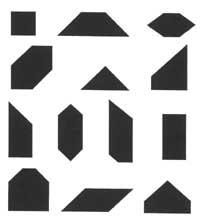
Tangram divisible
With this name, if the pieces of tangram are divided into two groups, it is to name the ones obtained by forming the same figures with the pieces of each group (see figure 6).
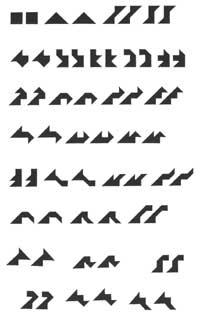
Finally we will say that there is no lack of other tangram games that resemble Chinese tangram. Below is this egg and some images that can be completed with your pieces. (See figure 7).
Although we could say more things, we believe that the best thing to understand tangram well is to play. Here is a small sample of the possibilities offered by the game. (See figure 8). Try it!
